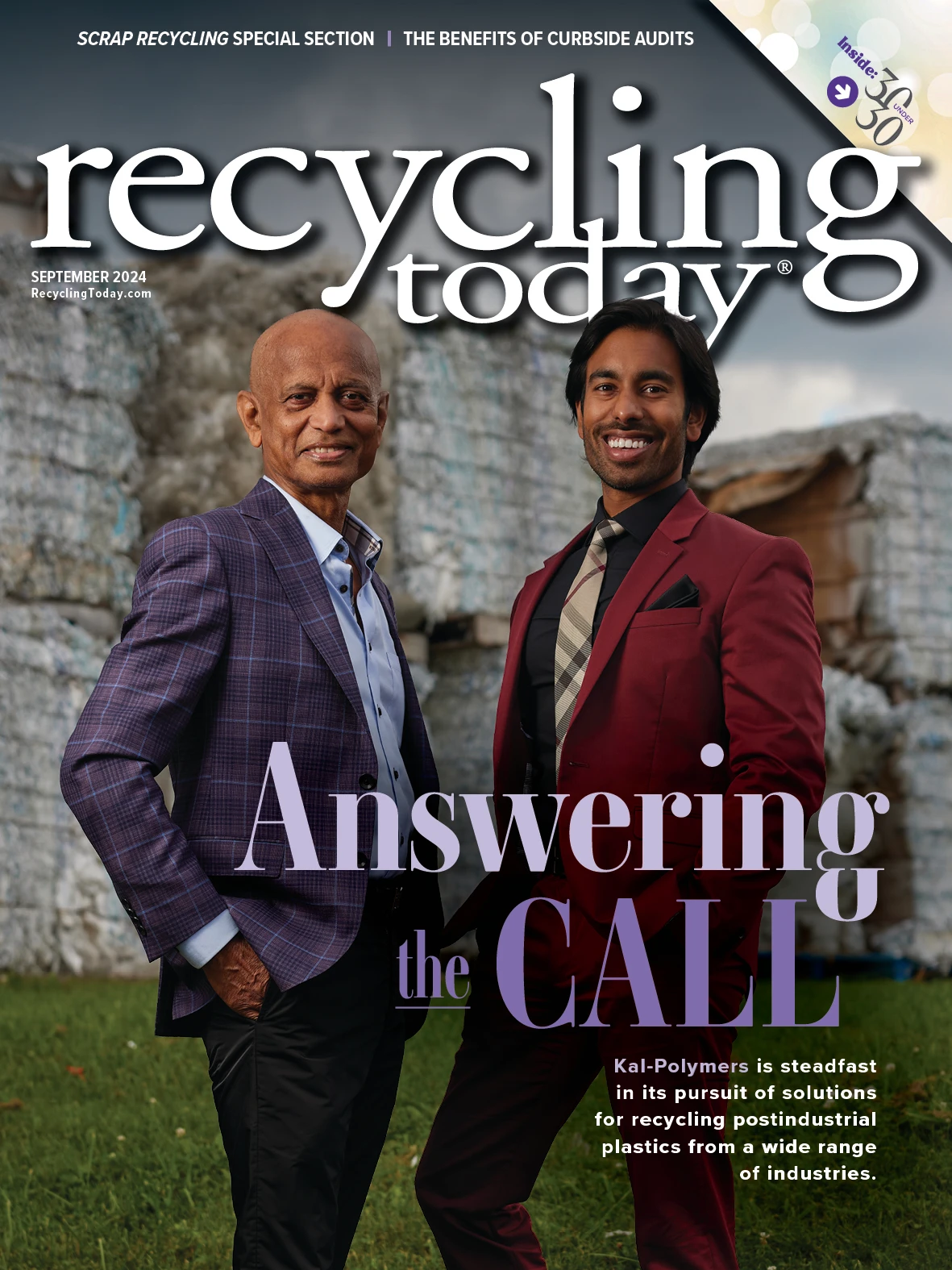Laurel Foell
Business development specialist at Return Polymers Inc.

Laurel Foell
Laurel Foell attributes her passion for plastics recycling to her family. When she was in high school, her family acquired Ashland, Ohio-based Return Polymers Inc., now owned by The Azek Co. of Chicago, and grinding plastic became one of her and her brothers’ first jobs.
“Imagine all of us with all of our best friends coming home every summer from university to grind plastic,” she says. “That’s how I got into the industry; I’ve always loved it.”
However, Foell did not immediately reenter the industry upon graduation. After earning degrees in marketing and sports management, she worked in sports before pivoting to the automotive industry. But she wanted more.
“I learned pretty quickly I wanted to be in sustainability,” she says. “I started to look for avenues to grow within sustainability and get more into what I love to do.”
"If you know about this industry, you love this industry.”
Today, Foell is a business development specialist for Return Polymers’ Full-Circle program. She uses her background in marketing to run the company’s Full-Circle tote recycling program, which sends collection bins to distribution centers, creating an avenue to recycle rigid polyvinyl chloride (PVC) building materials that otherwise would be landfilled.
In the future, she wants to build upon Return Polymers' educational marketing.
“I would love for people to view us as an educational [resource] for what all PVC [plastics] are,” she says.
In the following interview, Foell discusses challenges she’s faced in her career and ways the recycling industry could recruit young professionals.
Recycling Today (RT): What are some challenges you’ve faced in your career and lessons you’ve learned?
Laurel Foell (LF): One of my biggest first lessons I did not anticipate, and I’m very thankful that my leadership team let me learn the hard way, was that we are not everyone’s ideal version of recycling. We are in the industry of a plastic [PVC] that no one wants to deal with because no one understands it. It was painted in a bad light 50-plus years ago, and we have been fighting that bad light.
My first time [at] conferences … I was stunned by how quickly we were written off and not understood.
What I realized quickly is … we had to really explain what we were doing and how we did it, and we always walked out with people shell-shocked, stunned and on our side, but we weren’t greeted that way.
I remember the first few conferences I went to. I was a young woman in this profession, which [isn’t] common, and then I’m pumped about what I do, I’m passionate about what I do, and I know exactly what we’re doing, but I’m walking in and no one else does—that was a big eye opener for me, the education needed about not just rigid PVC, but all plastics [and] how they differ, how they should be properly recycled and what you can do with them if they’re recycled.
RT: How can the recycling industry recruit more young professionals?
LF: If you know about this industry, you love this industry. You easily fall into it, or you get a job that pushes you in here without even realizing what you are getting yourself into.
Better representation of what we do and how we do it is needed to get more recruiting in our industry.
With sustainability becoming … more spoken of than it ever has been, people are paying attention. People want to do the right thing, and they want to be in industries that not only can give them a great life but also can make them feel good about what they’re doing. This industry is one of those where you get that. … But I do think we need more representation of what’s available.

Explore the September 2024 Issue
Check out more from this issue and find your next story to read.
Latest from Recycling Today
- AF&PA report shows decrease in packaging paper shipments
- GreenMantra names new CEO
- Agilyx says Styrenyx technology reduces carbon footprint in styrene production
- SABIC’s Trucircle PE used for greenhouse roofing
- Hydro to add wire rod casthouse in Norway
- Hindalco to invest in copper, aluminum business in India
- Recycled steel price crosses $500 per ton threshold
- Smithers report looks at PCR plastic’s near-term prospects





